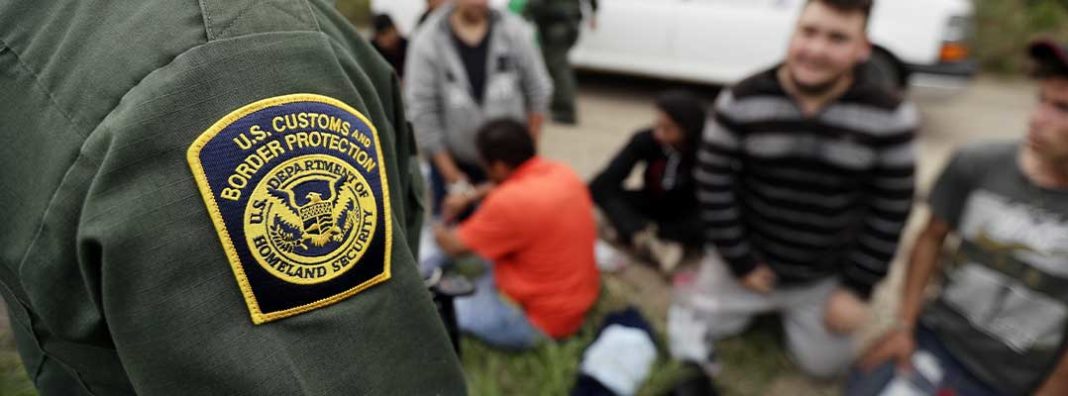
We should expect the best from our public servants, and they should feel an obligation to provide their very best to us. Otherwise, they should find other work. Earlier this month, ProPublica revealed posts from a secret Facebook group that raises questions about the culture within the Customs and Border Patrol (CBP). As the Washington Post put it, “Something is rotten in the Border Patrol, but is it a few bad apples or has a fungal disease infected the whole orchard?”
In response to these reports, House Oversight Committee Chairman Elijah Cummings (D-Md.) sent a letter to Facebook CEO Mark Zuckerberg asking the company to “preserve all documents, communications, and other data” including log files and metadata. He also asked Facebook to produce “all postings and comments, including images, videos, and text, as well as any deleted content.”
There is a compelling case for Congressman Cummings’ recent request that Facebook turn over all data related to this secret group. The secret Facebook group, “I’m 10–15,” which can only be seen by its members, had roughly 9,500 members including current and former Customs and Border Patrol employees. The CBP employs about 60,000 people in total, so the size of the group is significant, and recently similar pages have emerged.
The group’s posts were a mixture of troubling memes and jokes relevant to daily CBP life. Several included crude or racist jokes as well as extremely disrespectful depictions of members of the Congressional Hispanic Caucus, such as Representative Alexandria Ocasio-Cortez (D-N.Y.).
Despite the genuinely offensive content contained on the message boards of CBP’s private group, forcing Facebook to comply with this request would set a troubling precedent. This is an issue for Congress, CBP, and the Department of Homeland Security (DHS) to handle rather than Mark Zuckerberg.
The desire to hold members of the Facebook group accountable for their actions is laudable. These are individuals entrusted to maintain our borders and uphold the law, and their disrespect towards minorities and immigrants is antithetical to the American values they are tasked with defending. But demanding that Facebook turn over private data and posts is not the appropriate response. It turns the investigation away from where it would be most valuable — reforming the culture of the CBP — and makes this a question about online communication.
Online privacy is complicated. Don’t let this controversy make things worse.
There’s an inherent tension in privacy. Any right to privacy will allow some nefarious and ill-willed individuals some room to conspire. Privacy has clear benefits. It creates spaces for individuals to express intimate details of their lives without fear of retribution. For example, private channels allow domestic abuse survivors, religious and ethnic minorities, or members of the LGBTQ+ community to privately share their most personal experiences with others who might be able to help or benefit from the information.
It is also worth noting why Facebook is pivoting toward the kinds of private channels that are at the heart of this most recent CBP scandal. There is an apparent, growing demand for private spaces online. That can’t be much of a surprise to anyone. News coverage of data breaches has caused many of us to rethink how we live our lives online. Think about the last few holdouts you know who haven’t opened up social media accounts. Privacy concerns are often what makes them uneasy about signing up.
Privacy for employees?
The CBP has clear standards for the type of online behavior. The CBP’s Standards of Conduct, which employees are expected to adhere to, prohibit them from engaging in the exact conduct that the Facebook group was been involved in. The assistant commissioner for the CBP’s Office of Professional Responsibility released a statement almost immediately after ProPublica’s report stating that the DHS’s Inspector General was launching an investigation.
Moreover, as public figures, CBP employees should not expect the same level of privacy that ordinary citizens have when it comes to their work. But where is the line? Should public employees be required to turn over their social media accounts as a condition of employment?
For several years, state legislatures have passed laws to prevent private employers from asking for usernames and passwords. But the rules are far less clear for public employees, especially when there are allegations of misconduct. The answer to this thorny question should be worked out between the DHS Inspector General, the CBP, and border patrol agents, rather than Congress demanding data and documents from private social media companies whose duty is to customers and their privacy.
Where would Washington draw the line?
Let’s take a step back from the current situation and think through a slightly different hypothetical. Imagine that instead of it being border patrol agents, members of the Trump administration told Facebook that they suspected current and former Environmental Protection Agency (EPA) employees of using a secret Facebook group to coordinate resistance to President Trump’s environmental policy goals. Would it be appropriate for the Justice Department to demand that Facebook turn over all the data?
What if it were CBP employees using secret Facebook groups to coordinate with pro-immigration organizations like No More Deaths to get water to migrants dying in the desert — an act which happens to be an actual federal crime? Should CBP, or even Congress, feel it is appropriate to demand that Facebook turn those employees’ private data over to investigators?
Drawing these lines is not easy, and there will be tough calls no matter where the lines fall. However, we should avoid creating rules as reactionary fixes for the worst controversies like the one facing the CBP. Instead, we should think about the long-term consequences of setting such a precedent.
The House Oversight Committee rightfully plays a role in investigating public agencies to ensure that law enforcement agents enforce the law with clear heads and without bias. Ultimately, this investigation should be focused on the agency rather than what data Facebook does and does not have.
CBP could have and should have done more
This latest controversy should be a wake-up call for all public agencies, especially in law enforcement. Take a recent example in Philadelphia, where the city placed 72 police officers on administrative duty after racist social media posts surfaced. Or the Marine Facebook group whose members solicited and collected nude photos of female service members. Both investigations are ongoing and reveal the need for public agencies to step up, create crystal clear rules about online behavior for their employees, and have better processes for vetting and monitoring those on the job.
Moreover, immigrants, refugees, and asylum seekers do not have the same access to justice as some others who suffer at the hands of law enforcement. That puts them at higher risk as they must rely on others to advocate for them and trust in institutional safeguards. That is what makes Politico’s recent report that DHS had prior knowledge of these Facebook groups so disconcerting. According to Politico’s sources, public affairs employees for CBP monitored the Facebook group merely to see what people were talking about. As the former DHS official told reporters, “We were not talking about ‘10–15’ as a liability or an asset or as an item of concern.”
While a 2018 memo warned employees not to participate in an unidentified offensive social media page, this is not enough. It’s clear that CBP and law enforcement groups at every level should do more to ensure that citizens are well-served and that the voiceless are protected.
Being clear about where responsibility lies
While some have framed the current controversy as part of Facebook’s so-called hate speech problem, that’s a red herring. In the course of investigating allegations of misconduct, posts can be acquired by DHS without demanding massive amounts of data from Facebook. Congressman Cummings’ demands do not bode well for the type of privacy, so many are clamoring for and accusing Facebook of failing to protect.
While it is both convenient and fashionable to frame everything in D.C. these days as a tech problem, this is a people problem. It is also an institutional problem. It is an issue of integrity and decency within our entire law enforcement system and should be a basis for calls to real reform, not temporary solutions that fail to address the root of the problem.


